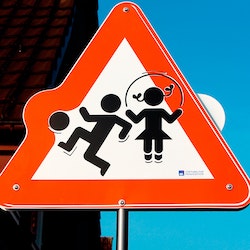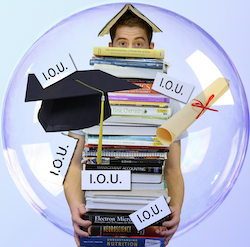The CDC says yes. But how do we know for sure?
“I’m not your butler,” I say several times a day. I want my kids back in school. Badly.
Schools here in Los Angeles have been closed since this whole coronamess started and now, almost a year in, researchers at the CDC have recommended that schools reopen. But it’s not that simple.
It didn’t take a whole heck of a lot of imagination to predict that there would be consequences to long-lasting virtual schooling. In addition to academic concerns, the isolation has been emotionally harmful to kids. I’d add that my emotional state would be greatly improved if my kids could go back to school.
There’s a major caveat, however. Communities need to prioritize safely opening schools over things like indoor dining and gyms. With the emergence of new variants and vaccines in short supply, there are hard choices to make if schools are going to reopen this school year. Please, let them reopen.
But I have to wonder if we are willing to make the sacrifices needed to reopen schools. I certainly hope so. And if they do open, how safe will they be? According to the CDC, there have to be mitigation measures at schools, regional restrictions must be tightened, and community spread has to be low. Parents are going to have to make a judgment about whether these three factors are enough to keep their kids safe.
How safe will campus actually be? That depends. To prevent disease transmission, schools must follow CDC guidelines: face masks, distancing, and cohorting. That means smaller classes, face masks all day, and physical separation. No contact sports. No indoor gatherings.
Even with these mitigation efforts, there are other things to consider. One such concern is a family’s living situation. If there are older or more vulnerable members of the family living together, there’s a greater risk. Dr. Peter Bailey, a family practice physician based in Northern California told me that he believes it is still too soon for schools to be reopening. “My biggest concern is that children’s social behavior can make them super-spreaders of the virus. It is not the children I am necessarily concerned about, but their grandparents, who are our most vulnerable population.”
Outside of school, parents must take into account what’s happening in their communities. Are bars and restaurants open? Are indoor gatherings permitted and happening? Is there a unified effort to prioritize safe school openings? And what are case levels like in the area? These are all important factors in making the decision about whether to send kids back to school. I’d like to think that everyone would be willing to get on board and make the sacrifices needed to get our kids back in school. Unfortunately, I’m not so sure that’s the case.
If everything is done right at schools, if public gatherings are limited or prohibited, if case numbers are low in your area, and if you don’t live with the most vulnerable among us, there’s a good case to be made to send kids back to school. However, if one or more of these factors is pointing in the wrong direction, it’d be wise to hesitate or ask your doctor.
There is also the emotional consideration for parents and kids alike. Kids are suffering. And so are parents. We don’t know the risks to children’s emotional well-being of such extended isolation. And for parents, like me, who can’t take a whole lot more of this, emotional health ranks high up there in the consideration. article continues after advertisement
Perhaps Dr. Jessica Edwards, a Texas-based family medicine practitioner sums it up best. “I have a 3-year-old,” she told me. “But I do not envy parents who are having to make this difficult decision at this moment.”
Indeed, it is not an enviable position for parents to be in.


